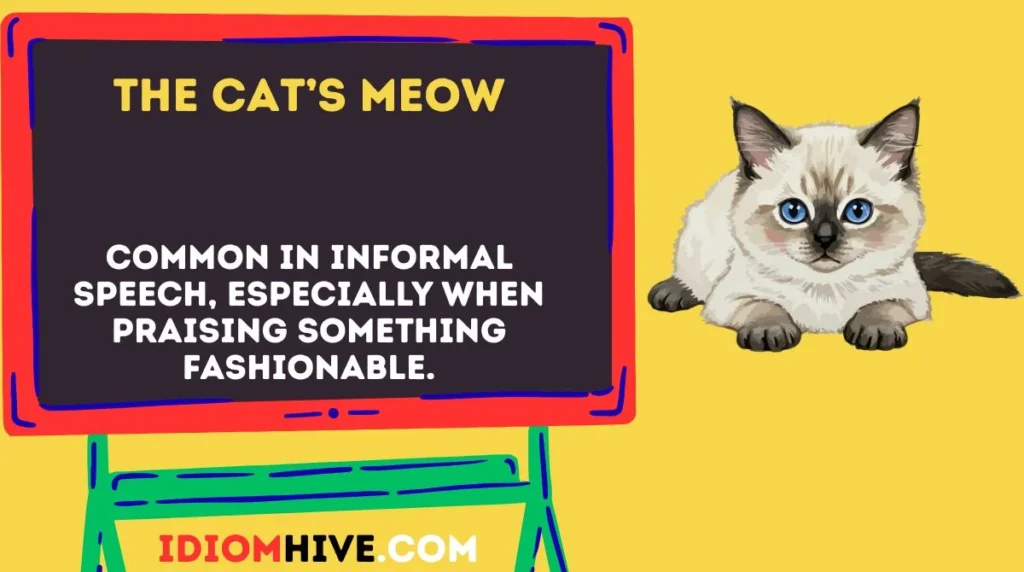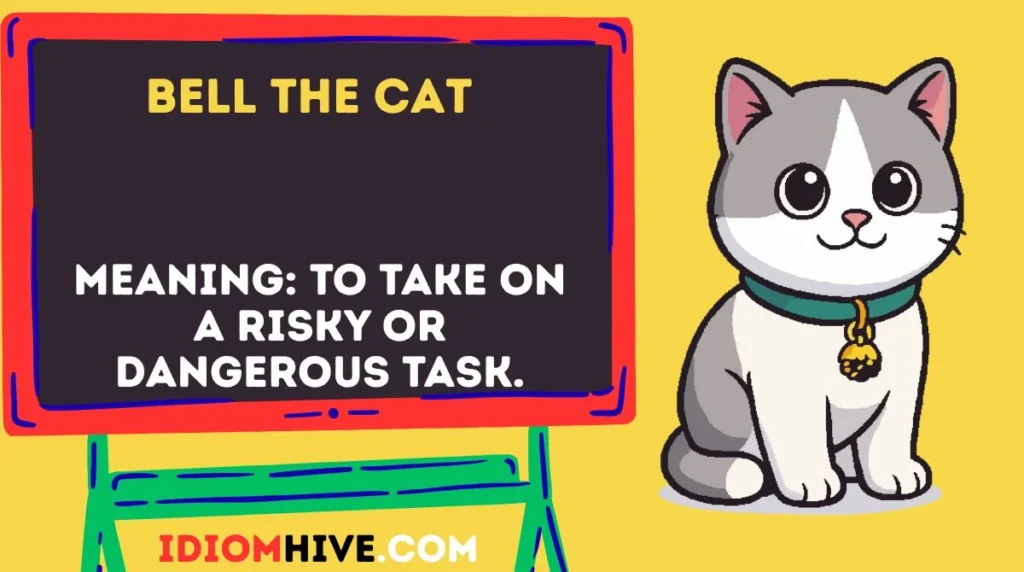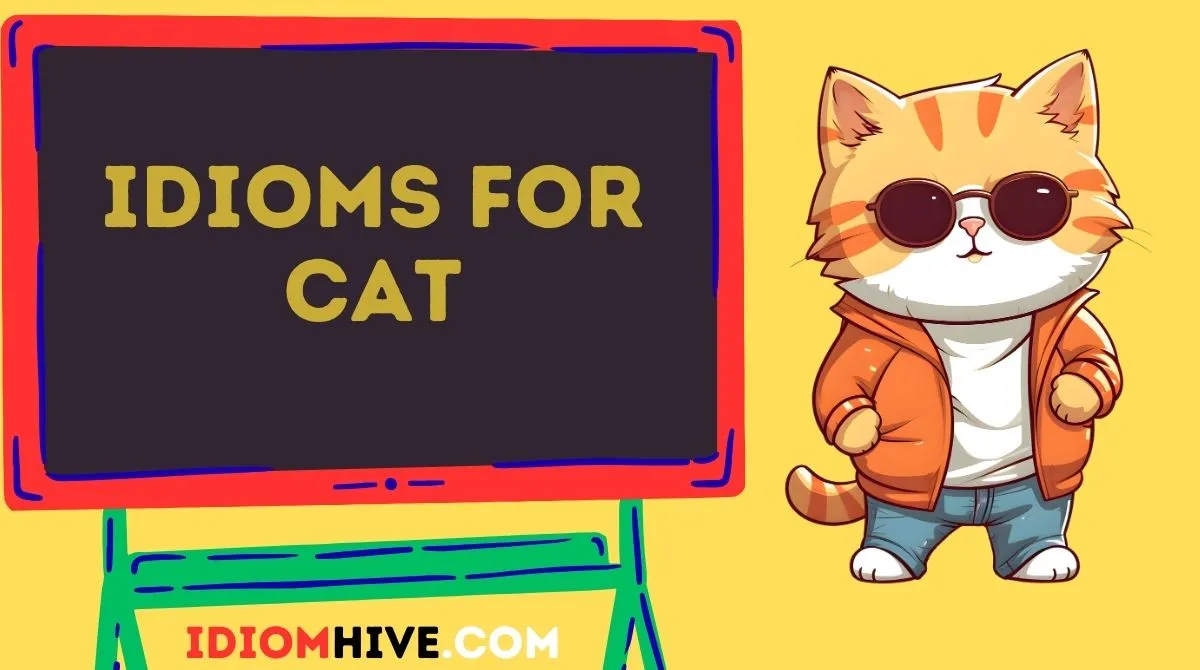Language is full of colorful expressions, and idioms are one of the most fascinating parts of English. An idiom is a phrase whose meaning is different from the literal meaning of its words.
Instead of saying something directly, idioms add flavor, personality, and depth to communication. They often carry cultural insights, humor, or shared experiences.
Cats, being mysterious, clever, and beloved animals across the world, have inspired countless idioms in English. Whether it’s about curiosity, stealth, mischief, or comfort, cats symbolize many human emotions and behaviors.
Learning idioms for “cat” not only makes your English sound natural but also helps you understand movies, books, and conversations better. These idioms are widely used in daily life, casual talk, and even in professional writing when you want to add a playful or creative twist.
So, if you’re ready to sharpen your English, let’s explore some fun and useful idioms inspired by cats.
Did You Know?
The English language has over 50 idioms related to cats, many of which go back hundreds of years. For example, “Curiosity killed the cat” first appeared in the 16th century. Cats became common symbols in idioms because they were close companions of humans, admired for their independence yet mischievous nature.
Idioms About Cat Behavior and Personality
The Cat’s Meow

Meaning: Something or someone excellent or stylish.
Example: “That new dress is the cat’s meow!”
Alternative: The cat’s pajamas.
Note: Common in informal speech, especially when praising something fashionable.
The Cat’s Pajamas
Meaning: Something wonderful or the best of its kind.
Example: “This new phone is the cat’s pajamas.”
Alternative: The bee’s knees.
Note: Informal, often used with admiration.
Cool Cat
Meaning: A calm, confident, or stylish person.
Example: “Jake stayed calm during the crisis—he’s a real cool cat.”
Alternative: Smooth operator.
Note: Informal, popular in music and casual conversation.
Copycat
Meaning: Someone who imitates another person.
Example: “Don’t be such a copycat and write your own essay.”
Alternative: Imitator.
Note: Used often with children and in casual talk.
Fat Cat
Meaning: A wealthy and powerful person, often in business or politics.
Example: “The fat cats of the industry control most of the market.”
Alternative: Big shot.
Note: Slightly negative, usually in political or financial discussions.
Aristocat
Meaning: Someone who acts fancy or privileged.
Example: “She lives like an aristocat in her mansion.”
Alternative: High society member.
Note: Informal, playful, inspired by Disney’s “The Aristocats.”
Alley Cat
Meaning: A stray or street-smart person.
Example: “He grew up like an alley cat, learning to survive.”
Alternative: Street rat.
Note: Informal, sometimes affectionate, sometimes negative.
Idioms About Cat Curiosity and Secrecy
Curiosity Killed the Cat
Meaning: Being too curious can cause trouble.
Example: “Don’t ask too many questions about his job—curiosity killed the cat.”
Alternative: Let sleeping dogs lie.
Note: Common warning in daily conversations.
Look What the Cat Dragged In
Meaning: Said when someone arrives looking messy or unexpectedly.
Example: “Well, look what the cat dragged in—you’re late again!”
Alternative: Speak of the devil.
Note: Humorous, informal greeting.
Let the Cat Out of the Bag
Meaning: To reveal a secret.
Example: “She let the cat out of the bag about the surprise party.”
Alternative: Spill the beans.
Note: Very common in both casual and professional usage.
Like the Cat Who Got the Cream
Meaning: Looking smug or very pleased.
Example: “After winning the game, he looked like the cat who got the cream.”
Alternative: Smug as a bug.
Note: Informal, often teasing.
Grinning Like a Cheshire Cat
Meaning: Smiling widely, often mysteriously.
Example: “He sat there grinning like a Cheshire cat after his prank.”
Alternative: Smiling ear to ear.
Note: Popular due to Alice in Wonderland.
Cat Got Your Tongue?
Meaning: Used when someone is unusually silent.
Example: “Why so quiet? Cat got your tongue?”
Alternative: Speechless.
Note: Casual, often playful.
Scaredy-Cat
Meaning: A cowardly person.
Example: “Don’t be such a scaredy-cat—go on stage!”
Alternative: Chicken.
Note: Common in children’s talk.
Idioms About Cat Movement and Mischief
Like a Cat on Hot Bricks
Meaning: Extremely nervous or restless.
Example: “She was like a cat on hot bricks before her interview.”
Alternative: On edge.
Note: British English expression.
Like a Cat on a Hot Tin Roof
Meaning: Very anxious or jumpy.
Example: “He’s like a cat on a hot tin roof waiting for exam results.”
Alternative: Fidgety.
Note: Also the title of a famous play.
Cat and Mouse Game
Meaning: A situation where one person tries to trap or outsmart another.
Example: “The debate turned into a cat and mouse game between the politicians.”
Alternative: Game of chase.
Note: Used in competitive or strategic contexts.
Play Cat and Mouse
Meaning: To tease or toy with someone.
Example: “Stop playing cat and mouse with her feelings.”
Alternative: String along.
Note: Informal, often in relationships.
When the Cat’s Away, the Mice Will Play
Meaning: People misbehave when the authority is absent.
Example: “The teacher left early, and the students went wild—when the cat’s away, the mice will play.”
Alternative: Out of sight, out of mind.
Note: Common in schools and workplaces.
Cat’s Cradle
Meaning: A tangled or complicated situation.
Example: “The legal system can feel like a cat’s cradle of rules.”
Alternative: Tangled web.
Note: Can be formal or informal.
Catfight
Meaning: A quarrel between women.
Example: “The tabloids reported a catfight between the celebrities.”
Alternative: Heated argument.
Note: Informal, sometimes rude.
Idioms About Cat Luck and Life Situations
A Cat Nap
Meaning: A short sleep.
Example: “I took a cat nap before dinner.”
Alternative: Power nap.
Note: Common in daily life.
A Cat Has Nine Lives
Meaning: Cats are lucky or survive dangerous situations.
Example: “He’s been in so many accidents—he must have nine lives.”
Alternative: Hard to kill.
Note: Casual, often humorous.
Raining Cats and Dogs
Meaning: Heavy rain.
Example: “It’s raining cats and dogs outside—take an umbrella!”
Alternative: Pouring down.
Note: Common worldwide.
Not Enough Room to Swing a Cat
Meaning: A very small or cramped space.
Example: “This tiny room has no space—it’s not enough room to swing a cat.”
Alternative: Packed like sardines.
Note: Informal.
A Cat in Gloves Catches No Mice
Meaning: Being too careful won’t bring success.
Example: “Be bold in negotiations—a cat in gloves catches no mice.”
Alternative: Fortune favors the brave.
Note: Slightly old-fashioned, but wise.
A Cat in Hell’s Chance
Meaning: No chance at all.
Example: “He hasn’t got a cat in hell’s chance of winning the match.”
Alternative: Slim chance.
Note: Informal, British.
A Cat Among the Pigeons
Meaning: Causing trouble or confusion.
Example: “His announcement put the cat among the pigeons at the meeting.”
Alternative: Stir the pot.
Note: Common in British English.
Fight Like Cats and Dogs
Meaning: To argue constantly.
Example: “Those two fight like cats and dogs.”
Alternative: At each other’s throats.
Note: Informal, family/relationship contexts.
Put the Cat Back in the Bag
Meaning: To try to hide a secret again after it has been revealed.
Example: “Once the news leaked, it was impossible to put the cat back in the bag.”
Alternative: Can’t unring the bell.
Note: Informal.
Bell the Cat

Meaning: To take on a risky or dangerous task.
Example: “Who will bell the cat and confront the boss?”
Alternative: Bite the bullet.
Note: Based on an old fable, formal or informal.
More Than One Way to Skin a Cat
Meaning: More than one way to achieve something.
Example: “Don’t worry, there’s more than one way to skin a cat.”
Alternative: Many ways to do it.
Note: Informal, problem-solving context.
How to Use These Idioms in Daily Life
- Speaking: Use simple idioms like copycat, scaredy-cat, or cat nap in casual chats with friends.
- Writing: Add creativity to essays, blogs, or social media by using idioms like raining cats and dogs or curiosity killed the cat.
- Professional Settings: In meetings or emails, idioms such as let the cat out of the bag or cat among the pigeons can make your language more engaging.
Common Mistakes Learners Make With Idioms
- Wrong word order:
❌ “The bag let the cat out.”
✅ “She let the cat out of the bag.” - Too literal use:
❌ “It’s raining cats and dogs, so animals are falling.”
✅ “It’s raining cats and dogs, meaning heavy rain.” - Overusing idioms:
❌ Using many idioms in one sentence makes it confusing.
✅ Use idioms naturally, one or two at a time.
FAQs
1. Why are there so many idioms about cats?
Because cats have been part of human culture for centuries—independent, playful, and mysterious, they inspired many sayings.
2. Are cat idioms formal or informal?
Most are informal, but some like let the cat out of the bag or cat among the pigeons can be used professionally.
3. Can idioms be translated directly into other languages?
Not always. Idioms often lose their meaning if translated word-for-word.
4. Which cat idioms are most common in daily English?
Popular ones include copycat, curiosity killed the cat, cat nap, and raining cats and dogs.
5. Should English learners memorize idioms?
Yes, but focus on the most useful ones first, then practice them in context.
Conclusion
Cat idioms bring fun, humor, and vividness to English. From describing curiosity and secrecy to survival and cleverness, these phrases reflect how people see cats as mysterious yet relatable creatures.
Learning idioms like copycat, curiosity killed the cat, or raining cats and dogs will make your English lively and more natural.
Practice using them in conversations, writing, and even in professional situations to leave a lasting impression. Just remember—idioms are like seasoning: use them wisely for the best flavor in your language!










